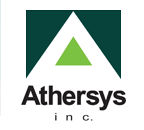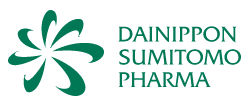预约演示
更新于:2026-02-17

Healios KK
更新于:2026-02-17
概览
标签
肿瘤
遗传病与畸形
眼部疾病
干细胞疗法
CAR-NK
细胞疗法
疾病领域得分
一眼洞穿机构专注的疾病领域
暂无数据
技术平台
公司药物应用最多的技术
暂无数据
靶点
公司最常开发的靶点
暂无数据
| 排名前五的药物类型 | 数量 |
|---|---|
| 干细胞疗法 | 2 |
| 自然杀伤细胞疗法 | 1 |
| CAR-NK | 1 |
| 细胞疗法 | 1 |
| 诱导性多能干细胞 | 1 |
| 排名前五的靶点 | 数量 |
|---|---|
| CCL19 x CCR2 x CD16 x IL-15 x NKG2D | 1 |
关联
6
项与 Healios KK 相关的药物靶点- |
作用机制 细胞替代物 |
在研机构 |
原研机构 |
最高研发阶段临床3期 |
首次获批国家/地区- |
首次获批日期- |
靶点- |
作用机制 细胞替代物 |
原研机构 |
非在研适应症- |
最高研发阶段临床阶段不明 |
首次获批国家/地区- |
首次获批日期- |
靶点- |
作用机制- |
在研机构 |
原研机构 |
非在研适应症- |
最高研发阶段临床前 |
首次获批国家/地区- |
首次获批日期- |
13
项与 Healios KK 相关的临床试验ISRCTN16270209
A randomised controlled trial of a conversational virtual avatar-led cognitive behavioural therapy app intervention for improving the quality of life and mental health of people with epilepsy
开始日期2022-03-14 |
申办/合作机构 |
NCT04533464
MultiStem® for Treatment of Trauma Induced Multiple Organ Failure/Systemic Inflammatory Response Syndrome
Single center, prospective, randomized, double-blind, pragmatic Phase 2 clinical study in severely injured trauma patients within hours of hospitalization who have survived initial resuscitation.
开始日期2020-11-09 |
申办/合作机构  Healios KK Healios KK [+1] |
NCT04367077
A Phase 2/3 Study to Assess the Safety and Efficacy of MultiStem® Therapy in Subjects With Acute Respiratory Distress Syndrome (ARDS) Due to Coronavirus Disease (COVID-19)
Multicenter investigation featuring an open-label lead-in followed by a double blinded, randomized, placebo-controlled Phase 2/3 part to evaluate the safety and efficacy of MultiStem therapy in subjects with moderate to severe Acute Respiratory Distress Syndrome (ARDS) due to pathogens including COVID-19.
开始日期2020-04-28 |
申办/合作机构 |
100 项与 Healios KK 相关的临床结果
登录后查看更多信息
0 项与 Healios KK 相关的专利(医药)
登录后查看更多信息
45
项与 Healios KK 相关的新闻(医药)2025-11-10
关于日本未来的细胞与基因治疗市场
首先,日本细胞与基因治疗市场规模在2024年已达到7.27亿美元。
根据报告预测,从2025年至2033年,该市场将以9.6%的复合年增长率(CAGR)增长,到2033年市场规模将达到20.16亿美元。
推动增长的主要因素包括:慢性疾病的增加癌症、心血管疾病以及遗传性疾病等慢性病的患病率持续上升,对这些治疗方法的需求不断增加。日本人口老龄化加剧随着高龄化进程加快,与年龄相关的疾病发病率也在提高,进一步推动细胞与基因治疗的必要性。
伴随着这些趋势,基因编辑和干细胞研究等生物技术领域的进展正在拓宽治疗的可能性,并推动市场的扩张。
另一方面,市场增长也面临一些挑战。新疗法的开发需要高昂的成本,而临床试验的失败也可能成为阻碍市场增长的因素。如果对这些挑战的应对准备不足,市场的增长率可能会与预测不符。
在市场机遇方面,战略性合作的增加被认为是关键。制药企业与生物技术企业之间的合作正在加速,预计将推动研发和市场进入的进程。
日本iPS细胞市场的未来趋势
日本的iPS细胞市场预计将继续保持强劲增长。全球范围内,再生医疗等产品的市场规模预计将从2020年的约6.9万亿日元增长至2035年的约12万亿日元,日本市场也有望沿着这一增长趋势扩张。
面临的挑战:产品质量管理、成本削减、量产技术的确立仍是产业化的关键难题。监管和审批流程仍需完善,以确保新疗法的安全性和有效性。
市场机遇:技术创新持续推进,日本多家研究机构正在开发创新技术并取得成果。政府和行业正在加快监管体系建设,推动快速且合理的审批流程。
主要企业与机构:富士胶片控股株式会社:专注再生医疗,开发基于iPS细胞和干细胞的治疗方法,并通过子公司J-TEC提供细胞培养技术产品。宝生物株式会社(Takara Bio):全球细胞与基因医疗产品领导者,提供细胞医学生产服务,开展基于iPS细胞的临床试验。日本新药株式会社:专注再生医疗产品研发,推进干细胞治疗。住友制药株式会社:开发医药与再生医疗技术,与HEALIOS合作扩大再生医疗业务。Medipal控股株式会社:专注再生医疗产品的流通与物流支持。杏林制药控股株式会社:在呼吸道和循环系统疾病治疗药物开发的同时,涉足细胞治疗。
领先研究机构与初创企业:CiRA(京都大学iPS细胞研究所):全球iPS细胞研究中心。ReproCELL:提供基于iPS细胞的再生医疗和药物研发支持。HEALIOS:专注眼科和脑部疾病细胞治疗,与住友制药合作。Mesogen:开发基于间叶系干细胞(MSC)的再生医疗产品,应用于心血管疾病和骨再生。
总结: 日本iPS细胞市场在老龄化社会和技术创新的推动下,未来将保持持续增长。然而,产业化挑战的解决以及监管体系的完善,将是市场扩大的关键。
细胞疗法基因疗法核酸药物
2025-02-24
MONDAY, Feb. 24, 2025 -- People taking the weight-loss drug
semaglutide
could be at a slightly increased risk for a potentially blinding eye condition that affects the optic nerve, a new study says.
Patients on semaglutide (
Ozempic
, Wegovy) had a 32% increased relative risk of developing nonarteritic anterior ischemic optic neuropathy (NAION) compared to people not taking the drug, researchers reported Feb. 20 in
JAMA Ophthalmology
.
NAION typically causes sudden vision loss in one eye, according to Brigham and Women’s Hospital.
It’s thought to occur due to a loss of blood flow to the optic nerve, damaging the neurons that transmit images to the brain.
Previous studies also have detected this risk.
A 2024 study based at Mass Eye and Ear in Boston reported a more than fourfold increased risk of NAION with semaglutide, researchers said in background notes. That study also appeared in
JAMA Ophthalmology
.
The new study provides "further evidence of an association between semaglutide and NAION but show a smaller risk than that previously reported,” concluded the research team led by
Dr. Cindy Cai
, an assistant professor of ophthalmology at Wilmer Eye Institute at Johns Hopkins.
However, the new study also found that patients prescribed semaglutide did not have a significantly increased risk for NAION compared with other GLP-1 diabetes medications.
More research is needed to confirm this link and to identify why semaglutide might have this potential effect on vision, the researchers added.
“In the absence of a known mechanism for this association, we urge clinicians to weigh the concern for an increased risk of a rare but potentially blinding eye condition with the many therapeutic benefits of semaglutide,” researchers also concluded.
For the new study, they analyzed health records for more than 37 million people with
type 2 diabetes
, of whom more than 810,000 had been prescribed semaglutide to help manage their diabetes.
The incidence rate of NAION among semaglutide users was just over 14 cases for every 100,000 person-years. Person-years refers to both the number of people in a study and the length of time researchers tracked their health.
“Semaglutide has a wealth of systemic benefits, but patients and prescribers of the medication should be aware of the association with an increased risk for NAION,” Cai told
Healio
, a website for health professionals.
In an
accompanying editorial
, researchers behind the 2024 study urged that the possible NAION risk from semaglutide be considered in the context of the drug’s many benefits.
“GLP-1RA drugs have provided considerable benefit to millions of users, including an increased chance of improved management of T2D [type 2 diabetes], substantial reduction in body weight, substantially improved morbidity and mortality of major adverse cardiovascular events, and even reduced addictive behaviors,” the editorial co-written by
Dr. Joseph Rizzo
, director of the neuro-ophthalmology service at Mass Eye and Ear, said.
“In our opinion, based on our current knowledge, patients should not stop taking semaglutide on this account alone, especially given potential increases in morbidity from conditions that are well controlled by semaglutide, potential adverse effects of hyperglycemia caused by abrupt cessation of treatment, and the seemingly low absolute risk of NAION,” the editorial said.
“However, it seems prudent to advise added caution for patients taking semaglutide or those who are considering starting this medication if they have experienced visual loss from any cause,” the editorial concluded.
Whatever your topic of interest,
subscribe to our newsletters
to get the best of Drugs.com in your inbox.
临床结果
2025-02-21
·汇聚南药
Biotech的冬天,比想象中更冷。
2023年以来,全球Biotech公司裁员、破产、退市的新闻此起彼伏。以下是2024年以来部分倒闭或面临重大危机的Biotech公司:
1. Tracon Pharmaceuticals
时间:2024年11月
原因:核心管线PD-L1单抗envafolimab联合疗法在关键3期临床试验中失败(客观缓解率仅4%),导致公司停止开发并启动清算程序。股东以98%赞成票通过解散提案。
2. Synlogic
时间:2024年2月
原因:治疗苯丙酮尿症的基因工程益生菌疗法SYNB1934在关键3期试验中提前终止,因数据预测无法达到主要终点。公司裁员90%,现金储备仅剩1940万美元,濒临破产边缘。
3. Aslan Pharmaceuticals
时间:2024年7月
原因:IL-13单抗eblasakimab的2b期临床试验失败,未能挑战Dupixent的市场地位。公司现金短缺(仅1840万美元),最终停止运营并寻求资产出售。
4. Athersys
时间:2024年
原因:干细胞疗法MultiStem在多项适应症(如中风)的临床试验中失败,最终被合作伙伴Healios以200万美元收购资产,结束29年运营。
5. 联拓生物(LianBio)
时间:2024年2月
原因:因持续亏损和融资困难,宣布逐步关闭业务并退市。公司通过出售管线(如Mavacamten和NBTXR3)回血,但仍无法扭转颓势,最终决定解散。
6. 博际生物
时间:2024年1月
原因:尽管拥有肿瘤靶向IL-15融合蛋白和双抗平台等创新技术,但因资金链断裂,成为2024年国内首家申请破产清算的Biotech公司。
7.Kojin Therapeutics
时间:2025年2月
原因:Kojin的主要管线(铁死亡诱导剂)长期处于临床前阶段,未能推进至临床试验(IND阶段)。最终因为资金链断裂,黯然退场。
Biotech倒闭的原因
临床失败:生物科技行业的核心逻辑是“以临床数据论生死”,临床试验失败(尤其是关键阶段失败)对Biotech公司的影响往往是致命的。临床试验失败会直接切断资金流入,导致现金流危机。 而多数公司因核心管线关键临床试验失败(尤其是3期)导致投资者信心崩塌,叠加融资寒冬加速了倒闭进程。
行业整合趋势:2024年Biotech行业持续出清,由于全球资本市场波动加剧,生物医药企业IPO数量减少且速度放缓,迫使企业转向并购或出售管线。2024年国内创新药并购事件数超过前两年总和,金额达58.82亿美元,但并购交易中的估值分歧和监管限制仍增加了退出难度。但是能通过并购或出售管线实现退出的只占少数。
融资环境恶化:当前全球政经环境不确定因素明显增加,中国经济也处于动能转换、结构调整的关键时期。经济政策的不确定性影响了民营企业的投资信心,导致生物医药行业的投融资活动放缓。。资本对生物医药领域的投资趋于谨慎,尤其是风险较高的早期创新药项目,导致企业现金流紧张。部分创新药企的现金储备仅能维持平均2.7年的运营,甚至个别企业仅能支撑几个月。
没有技术壁垒:有一些Biotech一味跟风拓展热门管线,却没有底层技术积累和真正的新技术;在行业火热的期间还能融到钱,但在融资环境恶化和没有研发进展的情况下,很难撑过寒冬。
资金链断裂是BioTceh倒闭的主要原因。尤其是一些早期Biotech公司在融资策略、研发效率及风险应对方面的脆弱性体现的更直接。而融资环境恶化加剧了Biotech的现金流危机。
厚棉袄才能抵御寒冬
当下的Biotech公司,如同寒风中瑟瑟发抖的旅人——那些没有“厚棉袄”护体的企业,终将在资本寒冬中倒下。而所谓“厚棉袄”,正是企业抵御风险的核心能力:充足的现金流、差异化的技术壁垒、灵活的战略调整能力,以及对政策的敏锐嗅觉。
第一层棉絮:现金流是活下去的底气
Biotech的“棉袄”里,必须填满真金白银。
美国铁死亡疗法先驱Kojin Therapeutics手握6000万美元A轮融资,却因管线长期停滞在临床前阶段,最终烧光资金黯然退场。反观国内药明生物,凭借稳定的CDMO业务和超20亿美元现金储备,在行业低谷期逆势扩产。 那些盲目扩张、依赖“融资续命”的企业,注定成为第一批冻僵的弃儿。
第二层防风层:技术壁垒决定抗寒指数
棉袄的厚度,取决于能否挡住刺骨的“技术逆风”。
当Synlogic的基因工程益生菌疗法三期失败时,投资人才意识到:看似前沿的合成生物学,若缺乏临床验证的差异化设计(如靶向递送效率),不过是纸上谈兵。而诺和诺德凭借GLP-1靶点的深度挖掘,用“减重神药”司美格鲁肽筑起百亿美元护城河。
据统计分析,FDA全年批准新药中,仅15%属于First-in-Class。盲目追逐热点却忽视底层技术验证的企业,终将被寒潮吞噬。
第三层保暖设计:战略灵活性比埋头研发更重要
在暴风雪中,懂得“弯腰低头”才能避免被折断。
当核心管线遇挫时,果断剥离非核心资产(如Athersys出售干细胞疗法专利)、收缩团队规模(如Synlogic裁员90%),或许能争取到一线生机。
例如:联拓生物曾高举License-in大旗,却因支付高额授权费耗尽现金流;而同样采用引进模式的再鼎医药,早早将管线重心转向商业化阶段产品(如PARP抑制剂尼拉帕利),在寒冬中稳住阵脚。
谁能活到春天?
Biotech行业具有“高创新、高风险、长周期”特性,那些熬过寒冬的Biotech,往往在“棉袄”里缝入了更深的生存逻辑:
要想熬过寒冬,企业需平衡以下关键点:
1. 管线差异化:避免同质化竞争,聚焦未满足临床需求(如博际生物的IL-15靶向性设计)。
2. 资金管理:保留至少24个月运营资金,控制研发预算(如Kojin的教训)。
3. 全链条能力:从靶点验证到CMC的全程把控(如ImmunityBio的警示)。
4. 灵活战略调整:及时止损或转型(如联拓生物在现金流耗尽前关闭)。
像Moderna一样储备“脂肪”:疫情红利期积累的百亿美元现金,支撑其mRNA肿瘤疫苗的长期探索;
像百济神州一样打造“多功能外套”:自建生产基地、全球化临床团队、多元化靶点布局,分散单一风险;
像丹麦药企一样“抱团取暖”:诺和诺德与Catamaran Bio合作开发CAR-M疗法,用生态协同抵御寒流。
Biotch的春天终将到来,但只有穿着厚棉袄的少数玩家,才能等到冰雪消融的时刻。
喜欢我们文章的朋友点个“在看”和“赞”吧,不然微信推送规则改变,有可能每天都会错过我们哦~
免责声明
“汇聚南药”公众号所转载文章来源于其他公众号平台,主要目的在于分享行业相关知识,传递当前最新资讯。图片、文章版权均属于原作者所有,如有侵权,请在留言栏及时告知,我们会在24小时内删除相关信息。
信息来源:原创 Bioyboy E药学苑
往期推荐
本平台不对转载文章的观点负责,文章所包含内容的准确性、可靠性或完整性提供任何明示暗示的保证。
临床3期并购IPO
100 项与 Healios KK 相关的药物交易
登录后查看更多信息
100 项与 Healios KK 相关的转化医学
登录后查看更多信息
组织架构
使用我们的机构树数据加速您的研究。
登录
或

管线布局
2026年02月17日管线快照
管线布局中药物为当前组织机构及其子机构作为药物机构进行统计,早期临床1期并入临床1期,临床1/2期并入临床2期,临床2/3期并入临床3期
临床前
4
1
临床3期
其他
3
登录后查看更多信息
当前项目
| 药物(靶点) | 适应症 | 全球最高研发状态 |
|---|---|---|
Invimestrocel (Athersys) | 缺血性卒中 更多 | 临床3期 |
HLCN-061 | 实体瘤 更多 | 临床前 |
HLCR-011 | 湿性黄斑变性 更多 | 临床前 |
HLCR-012 | 黄斑变性 更多 | 临床前 |
18H5-eNK Cells(HEALIOS) ( CCL19 x CCR2 x CD16 x IL-15 x NKG2D ) | 实体瘤 更多 | 临床前 |
登录后查看更多信息
药物交易
使用我们的药物交易数据加速您的研究。
登录
或

转化医学
使用我们的转化医学数据加速您的研究。
登录
或

营收
使用 Synapse 探索超过 36 万个组织的财务状况。
登录
或

科研基金(NIH)
访问超过 200 万项资助和基金信息,以提升您的研究之旅。
登录
或

投资
深入了解从初创企业到成熟企业的最新公司投资动态。
登录
或

融资
发掘融资趋势以验证和推进您的投资机会。
登录
或

生物医药百科问答
全新生物医药AI Agent 覆盖科研全链路,让突破性发现快人一步
立即开始免费试用!
智慧芽新药情报库是智慧芽专为生命科学人士构建的基于AI的创新药情报平台,助您全方位提升您的研发与决策效率。
立即开始数据试用!
智慧芽新药库数据也通过智慧芽数据服务平台,以API或者数据包形式对外开放,助您更加充分利用智慧芽新药情报信息。
生物序列数据库
生物药研发创新
免费使用
化学结构数据库
小分子化药研发创新
免费使用

